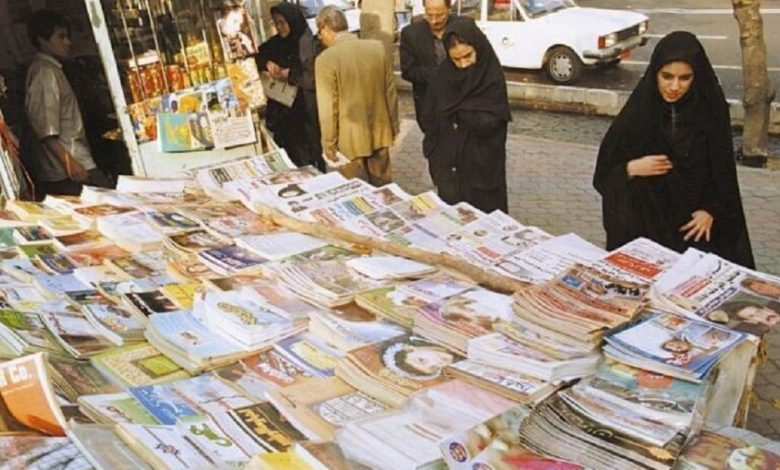Iran State Media: Poverty, Inflation, and Corruption Could Trigger Another Uprising

Written by
Mansoureh Galestan
The Persian New Year of 1400 is about to end, while according to one state-run media, Mardom Salari on March 1, “It was a year full of suffering from coronavirus, unstable economy, high and constant inflation, rather than good days for the people.”
Protests span across Iran by people from all walks of life who cannot make a living. The country’s economic crunch worsens due to the regime’s institutionalized corruption, ineptitude, and mismanagement.
The situation has reached a point where even the tightly controlled state media acknowledge some aspects of people’s harsh life and how the regime creates and exacerbates crises.
“Inflation above 40% and skyrocketing prices in all sectors, including housing, essential goods, healthcare, education, and cars, has caused the cost of the household basket to reach about 90 million rials. This number may have reached more than 120 million rials,” the paper added.
Meanwhile, the minimum wage in Iran is less than 400 million rials or $152 at the free-market exchange rate.
“The country’s economic situation shows that despite all the promises, the situation is still chaotic and challenging so that these days when we approach the new year, we do not see or the color and scent of Eid (Nowruz festivities) at all,” Aftab-e Yazd daily wrote the same day.
Since becoming the regime’s president in June 2021, Ebrahim Raisi has surpassed his predecessor Hassan Rouhani in giving hollow promises. His provincial trips and speeches are inseparable from inept talks, grammatic errors, and a litany of lies. As a result, public protests have increased. “Raisi began his work amid widespread protests in recent months, setting a new record. Many guilds, including teachers, took to the streets to protest their living conditions. Still, in contrast, the Raisi government has only made various promises,” the state-run Hamdeli daily acknowledged on March 1.
With every passing day, Raisi’s government continues to fail in realizing its bogus promises. Yet, Raisi, aka “the hanging judge,” and his ilk has been well-performing their main duty: clamping down on protests. “In many cases, protesters have experienced violent measures instead of officials addressing their demands. This, according to experts, has not only stopped the protests but also increased social criticism,” Hamdeli wrote.
Now, as the crises deepen, many of the regime’s economists and experts warn about people’s reactions. Hossain Raghfar, an economist, told the state-run Sharq daily on March 1 that in “the current situation,” the regime is “vulnerable.”
“This current situation is mainly due to the inadequate and unequal distribution of opportunities and privileges, prestige, wealth, etc., in society; the distribution of opportunities needs to be reformed quickly. Otherwise, we may face more volatility in society,” Raghfar added.
While many Iranians hardly make a meager living, they witness the lavish lives of regime officials and their relatives. According to Raghfar, “economic opportunities were created unequally for specific groups after the Iran-Iraq war. This was undoubtedly the result of wrong economic policies called structural adjustment policies.”
In other words, contrary to what the Iranian regime’s apologists try to imply, sanctions are not the primary cause of Iran’s current crippling financial crises. Ahmad Tavakoli, a former MP, told the state-run Aftab-e Yazd daily on February 28, “We are facing a cycle of systemic and a network of corruption. Sometimes laws are written to embezzle, and resources will go in a specific direction. The fight against corruption must start from the top. [regime] officials wanted to live differently from the people, so they sold themselves when someone offered them a position.”
Iran’s social and economic crises have soared in recent years, and many regime officials and experts fear that people’s uprising could once and for all topple the establishment.
“At least in the last 30 years, when we had the first protests of deprived groups in Mashhad, we have experienced 90 protests by deprived people in the country from various sectors. Some of them are events we witnessed in January 2018, November 2019, and a few months ago in Khuzestan and Isfahan. These protests may take other forms,” Raghfar warned regime officials.

